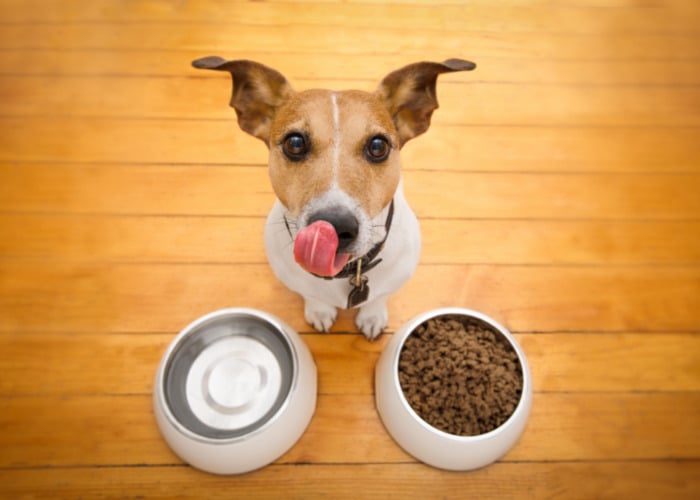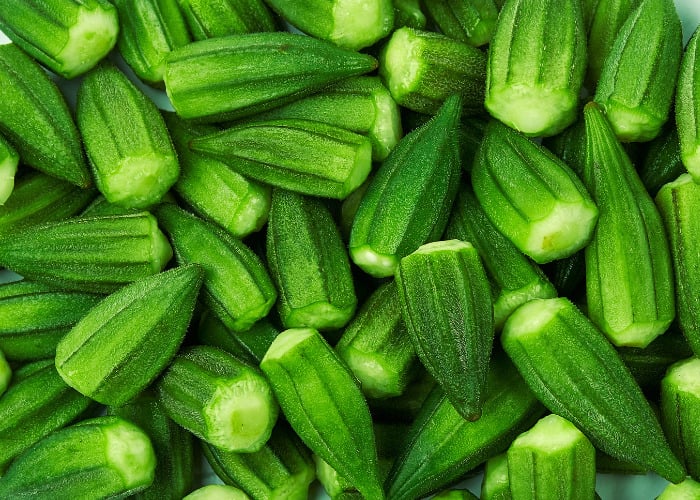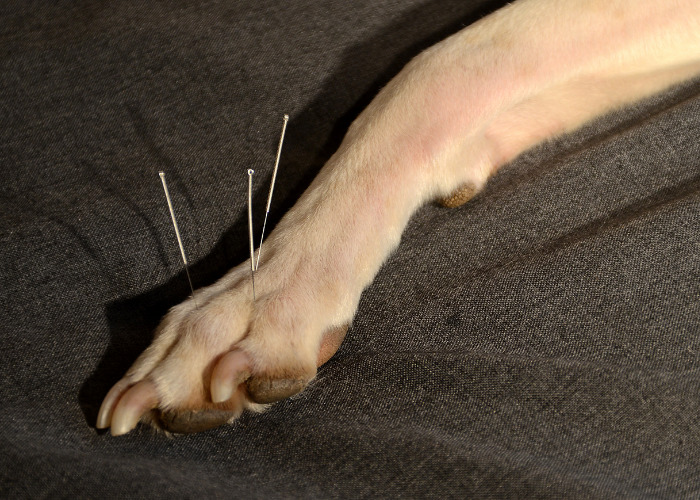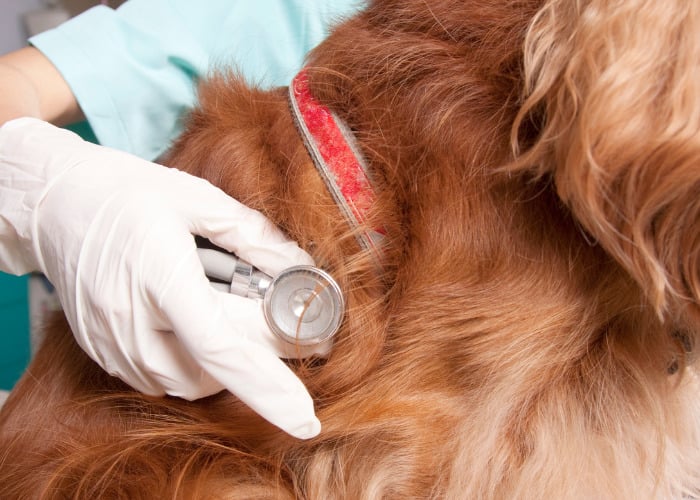Table of Contents
- Natural Diuretics for Dogs and Their Effects
- Natural Diuretics for Humans, Can They Be Used on Dogs?
- Natural Diuretics for Dogs: Most Effective Way
- Natural Herb Diuretics for Dogs
- Natural Food Diuretics for Dogs
- Natural Diuretic for Dogs: Other Options To Reduce Water Retention
- Natural Diuretics for Dogs: Final Thoughts
Since the turn of the century, this new generation of fur parents has been more indulgent in their fur babies' physical health. They have always found ways to improve them, thus leading to natural diuretics for dogs.
Natural diuretics are essential because they can help your pet's kidneys operate correctly. It also cleanses their body of toxins that could cause ailments.
However, natural diuretics reduce the quantity of fluid in the body and disrupt its equilibrium if given more than what it's supposed to.
As a result, it's a recommendation to give your pet natural diuretics, whether they may be food diuretics or herb diuretics for dogs, under the supervision of a veterinarian.

Natural Diuretics for Dogs and Their Effects
A diuretic is a medicine that helps the body get rid of excess fluids and salts. Increased sweat and feces output is also affected by such medications and is helpful for cases like urinary tract infection (UTI) or constipation.
They induce more salt to be excreted in the urine by the kidneys. The body adds extra water to the urine throughout urine creation because the urine becomes concentrated because of the increasing salt concentration.
The body extracts this water from the bloodstream. As a result, the amount of fluid in the bloodstream decreases, and the pressure on artery walls decreases.
Natural diuretics are diuretic foods and plants that you can find naturally.
Diuretics help the body remove toxins by increasing the volume of urine, bowel movement, and sweating. It helps in detoxifying their state and making them feel better.
You can add natural diuretics for dogs to their daily meal in tiny doses, primarily based on their size.

Natural Diuretics for Humans, Can They Be Used on Dogs?
The short answer is: yes, we can use these diuretics on dogs, as they will still have the same effect.
However, it's still up to the veterinarian if you can administer these diuretics to them.
Even if they may have similar results, an overdose of diuretics may lead to complications, which is why their natural diuretics are a big recommendation.

Natural Diuretics for Dogs: Most Effective Way
Consider this: administering diuretics doesn't have to be generic or branded medicines. Sometimes, they may come in items they can ingest and enjoy simultaneously.
Dogs' most effective natural diuretics are natural herbal diuretics and natural dietary diuretics.
Therefore, we have compiled food items that your pup may ingest as natural diuretics. You'll be sure that they're safe to eat and you won't have any problems with their health in the future.
Natural Herb Diuretics for Dogs
Many natural diuretics for dogs are available in herbs that may help them overcome a lot of illnesses. The majority of these illnesses connect to their digestive system.
Natural herbal diuretics have medical value and can be highly effective and safe.

#1: Alfalfa
Alfalfa is a high-nutrient herbal remedy that acts as a blood purifier and aids the digestive tract of dogs. It's also a good treatment for acid reflux and stomach distress.
Alfalfa also has phytoestrogens, which help prevent heart attacks, cancer, and osteoporosis (bone disease). Chop up some alfalfa sprouts and serve two tablespoons with your dog's daily diet.
If you're using organic alfalfa powder, feed your small dog 18 teaspoons, your medium dog 14 teaspoons, and your large dog 12 teaspoons.
#2: Red Clover
Red clover is one of the most effective natural diuretics for dogs. It is beneficial in the treatment of skin problems and also cleanses the blood.
It's useful for medication to help with coughs, asthma, and even bronchitis and treat cysts and cancer.
The herb is also available as tinctures, pills, capsules, and liquid extract, among other forms. Consult your veterinarian for specific dose recommendations based on your dog's breed.

#3: Raspberry Leaves
We usually give raspberry leaves to pregnant pigs as a dietary supplement. These leaves are excellent for strengthening the uterus.
Raspberry leaves, also known as a reproductive tonic, contain astringent characteristics that treat diarrhea. A pet owner should only administer this tonic after consultation with a veterinarian.
Depending on how much it is drunk as tea, it can also increase urination and laxative. It's practical and safe to ingest for dogs, but it's essential to take a vet's advice for it.

#4: Burdock
Burdock is a natural body cleanser that aids in blood purification improves digestion, and stimulates sweating, which helps wash out toxins from the body.
It can also treat skin conditions and arthritis in dogs. Burdock may be fed to dogs in large quantities since it is a nutritious diet with no hazardous side effects.
You can also add fresh or dried burdock root tonics to your dog's meals. A potent tincture of fresh or dried root in glycerin can also be an alternative.

#5: Hawthorn
Over time, the hawthorn plant can increase the quantity of blood pumped during a cardiac contraction, making each heartbeat stronger.
It lowers blood pressure by relaxing blood arteries and circulating freely.
Hawthorn also contains antioxidant properties that combat free radicals that harm red blood cells and aids in the removal of fat deposits in arteries.

Natural Food Diuretics for Dogs
Natural diuretic properties are in various fruits and vegetables, and they can be pretty helpful to your dog's health. They are high in nutrients and chemical compounds that help the body cleanse and detoxify.
Natural diuretic foods should be provided modestly and proportionate to your dog's size. Try to include any of the following fruits and vegetables in your dog's diet:

#1: Bananas
Bananas are high in potassium, which helps strengthen your pet's muscles. It prevents bowel illness by introducing tiny amounts of natural acidophilus bacteria to your pet's intestines.
You can serve bananas by themselves, mashed to their food, or a frozen treat for a hot, sunny day.

#2: Celery
Celery seeds and plants are high in potassium and salt, encouraging more urine output. This diuretic is also a blood cleanser and detoxifier by nature.
Make sure to cut the celery into bite-sized pieces before feeding it to your canine. It's easy to portion out their serving size this way, and it's better to introduce a new food item to your dog slowly.

#3: Peach
Peach is also dogs' favorite due to its sweet and tart flavor. It detoxifies the body by removing toxins and is suitable for the kidneys.
You may give this to your pup as a treat or as a part of their food bowl.

#4: Papaya
Vitamins A, C, E, and calcium, phosphorus, and iron are abundant in papaya. These nutrients aid in relieving any digestive issues your dog may be experiencing.
You may chop the fruit into large pieces, remove the seeds, and feed it to your dogs as a snack or a treat as long as it's, you'll have no problem with them.

#5: Okra
Okra, also known as ladies' fingers, is a green vegetable that grows well in the tropics. It mainly aids in the treatment of digestive issues in dogs.
It also has a high sodium content, so it's an effective diuretic.
You may add this as a broth for your dog's daily meals.

Natural Diuretic for Dogs: Other Options To Reduce Water Retention
Pushing for therapy must go on simultaneously as treatment. If you start taking your dog to treatment, you may observe an increase in energy in their health.
Here are other factors that you may try to do so you can prevent your puppy from being bloated with water:

#1: Acupuncture
Acupuncture in itself is a therapy that your dog may undergo to release pressure from their bodies. It is the practice of penetrating the skin with needles, then activating gentle and specific movements.
Therapists put the needles in “acupuncture points,” where nerves and blood vessels tend to meet. These needles may enhance blood circulation, promoting healing activity if placed well.
It's usually for dogs with joint problems, but it is another option for canines with water retention problems. It improves your dog's body's quality of life by reducing pain and inflammation.
Acupuncture is beneficial, especially for athletic dogs, and the needle placements may induce the relief that they may get from the therapy. The simulation may go from as little as 10 seconds to as long as 30 minutes—imagine the comfort they can get.
A professional may only do this since it can be risky if you try it yourself without prior knowledge.

#2: Acupressure
On the other hand, Acupressure works like acupuncture except for the usage of needles. Unlike the therapy stated above, this method uses pressure points to relieve the system.
These pressure points around the body can stimulate both internal and external relief in your dogs' bodies. With that said, it can be effective for treatment concerning water retention.
Acupressure is effective, especially in points that a needle cannot reach. The procedure may be done on its own or combined with acupuncture.
You may do this by yourself or with a professional.

#3: Compression and Gland Expression
You may also apply compression onto your dog, especially when they have a bloated physique due to water retention. You may use heating pads as long as you apply compression as what the vet tells you.
On the other hand, you can also express your dog's anal glands for them to disperse the excess water on their stomach. You must prepare latex gloves, Vaseline as a lubricant, paper towels, and a warm washcloth to do them yourself.
Try to secure your dog's tail up, then insert your lubricated and gloved index finger into your dog's anus. Once you've located your dog's anal glands, squeeze them until emptied; as much as possible, don't block the opening.
After expressing them, clean up your dog's behind with the warm washcloth thoroughly. The fluids from the glands may be fishy, so clean-up is a must.
You can do this procedure independently, or you may get your dog's vet to do it, too.

#4: Medication
You must always consult a veterinarian on what you have to do, which medications to administer, and what to avoid for your pup. There may be anything or any illnesses associated with their digestive problem.
If there are any problems regarding their digestion, you must always note what the vet suggests you may do. As much as possible, please bring them to the vet to get them checked up until they're finally alright.

#5: Change in Diet
Finally, you may also change your dog's diet regimen following what we've suggested they may eat earlier. The veterinarian may also recommend a diet plan for your dog to follow.
They may give a diet plan that will boost your dog's immune system, as well as maintain fiber for their digestive system.
Other than that, it would be best if you took care of your dog's dental health. Monitoring your dog's food and treat intake may help their overall state.
Some veterinarians believe dogs may need detoxification from preservatives to natural food.

Is Apple Cider Vinegar a Good Diuretic?
Yes, apple cider vinegar is an excellent natural diuretic when sprinkling some on your dog's food.
You may also add apple cider vinegar to their water bowl no more than one tablespoon per 50 pounds of their weight. However, limit your usage of this diuretic at least around twice a week.
Natural Diuretics for Dogs: Final Thoughts
As a fur parent, finding a way to ensure that our fur baby is healthy is a responsibility we can't rid ourselves of. This is why looking for natural diuretics for dogs is normal, even looking for other diuretic options.
We recommend that you only use these diuretics in your dog's diet after checking with your regular veterinarian. Food diuretics, herb diuretics, and apple cider vinegar are good natural diuretics for them, but you must always check them before administering them.
Different diets and dosages are required for other dog breeds. These might be harmful to your dog if they ingest many of them.
















